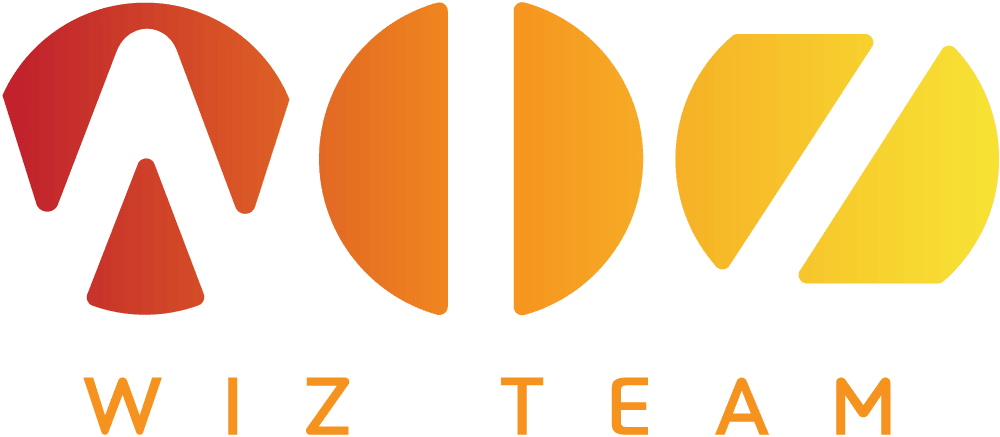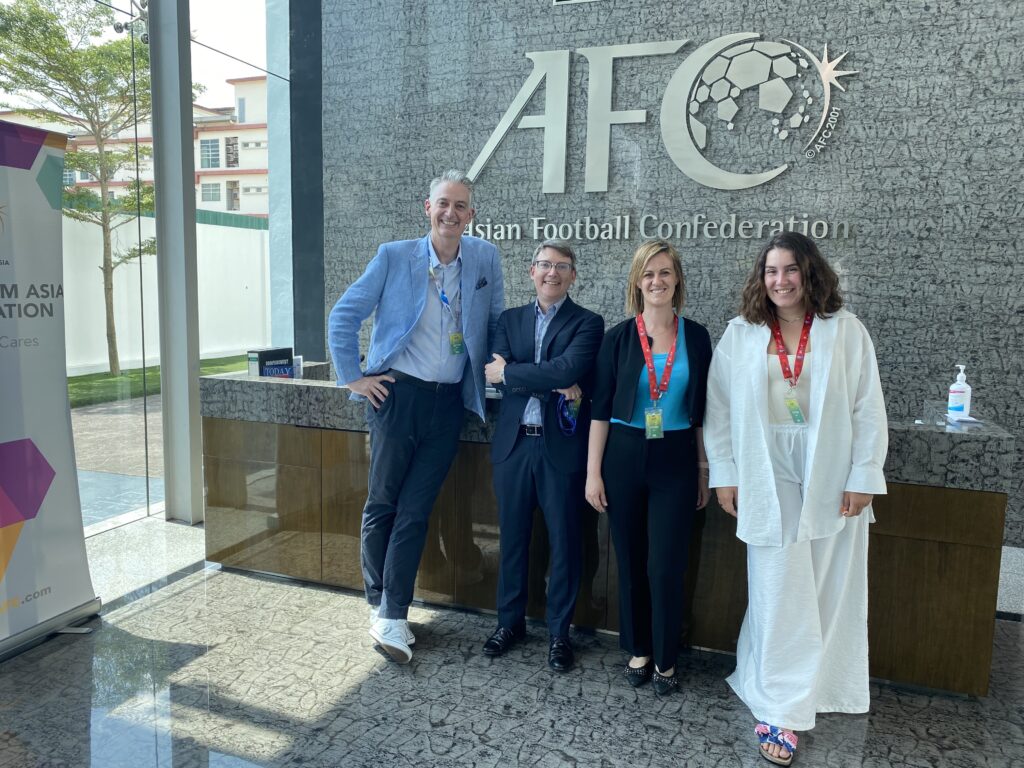Planning and executing an event, whether a small corporate meeting or a large-scale conference, is no small feat. Yet, one of the biggest challenges event organizers face isn’t just the event day itself; it’s understanding how to measure success and identify areas for improvement afterward.
Without clear, actionable feedback, every event risks repeating the same mistakes or missing opportunities to elevate attendees’ experiences.
Gathering honest, insightful feedback can be challenging. Generic or poorly crafted post-event surveys often yield low response rates or vague answers that don’t translate into meaningful action.
So, how do you create post-event survey questions that capture valuable insights and drive real improvements for your future events? This blog will guide you through proven strategies for designing survey questions that resonate with your audience, uncover critical feedback, and enable your team to make data-driven decisions.
Why Post-Event Survey Questions Matter
Post-event surveys are indispensable tools for event planners aiming to assess the effectiveness of their events and to gather actionable insights for future improvements. They serve as a direct channel to understand attendee satisfaction, identify areas of success, and pinpoint aspects needing enhancement.
-
Measuring Attendee Satisfaction
Post-event surveys provide direct feedback from participants, helping planners gauge the overall experience and identify what aspects were well-received or fell short.
-
Identifying Strengths and Weaknesses
These surveys highlight the successful elements of an event, as well as areas that need improvement, offering valuable insights for refining future events.
-
Informing Future Event Planning
The data collected from surveys can guide planners in making informed decisions, optimizing event strategies, and addressing issues that may have impacted the attendee experience.
-
Return on Investment (ROI)
By analyzing attendee feedback, event planners can demonstrate the value and impact of their event, helping to justify the budget and effort spent.
-
Enhancing Stakeholder Relationships
Survey responses show stakeholders that their opinions are valued, fostering stronger relationships by demonstrating a commitment to continuous improvement and satisfaction.
Event planning can be overwhelming, with countless details to manage. At Wiz-Team, with over 100+ years of combined event delivery experience, we understand these challenges. Our Event-Works platform offers customizable, cloud-based solutions to simplify every aspect of your event, from registration and participant management to real-time feedback analysis, helping you enhance efficiency for events.
After understanding the importance of post-survey questions, let’s explore the different types of questions you can ask to gather the most insightful feedback from your attendees.
Types of Survey Questions for Post-Event Feedback
When creating a post-event survey, it’s essential to choose the right question types to gather actionable feedback from your attendees. By using different question formats, you can collect both quantitative data (for analysis) and qualitative insights (for deeper understanding).
Common Post-Event Survey Question Types
Here’s an overview of the most commonly used types of survey questions and how they can help you assess different aspects of your event.
| Question Type | Description | Best Used For | Example |
| Likert Scale | Measures the degree of agreement or satisfaction with a statement. | Evaluating attendee attitudes, perceptions, and overall satisfaction with the event. | How satisfied were you with the event overall? (Strongly Disagree | Disagree | Neutral | Agree | Strongly Agree) |
| Open-Ended | Allows respondents to express their thoughts in their own words. | Gaining detailed feedback or capturing specific attendee experiences and recommendations. | What was the most valuable takeaway from the event? (Open-ended) |
| Closed-Ended | Requires respondents to choose from a set of predefined answers. | Collecting simple, quantifiable data, such as yes/no answers or attendance data. | Did you attend the keynote session? (Yes/No) |
| Rating Scale | Asks respondents to rate an aspect of the event on a predefined scale. | Measuring specific aspects of the event, such as speaker performance or session quality. | How would you rate the keynote speaker? (1 = Poor, 5 = Excellent) |
| Multiple-Choice | Provides a list of options to choose from, can be single or multiple choice. | Gathering information on preferences, demographics, and specific aspects of the event (e.g., sessions attended). | Which sessions did you attend? (Keynote, Breakout Session, Panel Discussion) |
The next step is organizing them into key categories. This ensures you’re covering all the important aspects of the attendee experience and gathering the most useful feedback.
Also Read: Client Workshop boosts knowledge transfer and connections
Key Categories for Post-Event Survey Questions
When creating a post-event survey, it’s crucial to break down the questions into categories to ensure you cover all the important aspects of the event. Each category focuses on a different area of the attendee experience, allowing event planners to gather targeted feedback and make data-driven improvements. Here are the key categories for your post-event survey questions, with an overview of each:
1. General Event Feedback
These questions are designed to assess the overall satisfaction of the attendees with the event. They help you understand how well the event met its objectives from the attendees’ perspective.
Key Focus: Overall event experience, satisfaction levels, and general impressions.
Example questions
- How would you rate the event overall?
(Options: Excellent, Good, Average, Poor, Very Poor)
- Was the event worth your time and investment?
(Options: Yes, No, Maybe)
- How likely are you to recommend this event to others?
(Options: Definitely, Likely, Neutral, Unlikely, Definitely Not)
- What was your overall impression of the event’s organization?
(Options: Excellent, Good, Fair, Poor)
- How satisfied were you with the event’s agenda and schedule?
(Options: Very Satisfied, Satisfied, Neutral, Dissatisfied, Very Dissatisfied)
2. Content/Session Feedback
These questions focus on the relevance and quality of the content presented during the event. Feedback here can help improve session topics, structure, and delivery for future events.
Key Focus: Relevance of content, quality of sessions, engagement levels, and overall value of the information presented.
Example Questions:
- How relevant were the topics covered during the event?
(Options: Very Relevant, Somewhat Relevant, Neutral, Somewhat Irrelevant, Very Irrelevant)
- How satisfied were you with the variety of topics covered?
(Options: Very Satisfied, Satisfied, Neutral, Dissatisfied, Very Dissatisfied)
- Did the sessions meet your expectations?
(Options: Exceeded Expectations, Met Expectations, Below Expectations)
- Which session did you find most valuable?
(Open-ended response)
- Was the information provided in the sessions practical and actionable?
(Options: Very Practical, Somewhat Practical, Neutral, Somewhat Impractical, Very Impractical)
3. Logistics Feedback
These questions aim to gather insights on the logistical aspects of the event, such as venue accessibility, registration process, and the overall flow of the event. This feedback is essential for identifying areas where event operations can be streamlined or improved.
Key Focus: Event location, registration, event timing, and overall logistical experience.
Example Questions
- How easy was it to register for the event?
(Options: Very Easy, Easy, Neutral, Difficult, Very Difficult)
- How would you rate the event location in terms of accessibility?
(Options: Excellent, Good, Fair, Poor)
- How satisfied were you with the event’s schedule and timing?
(Options: Very Satisfied, Satisfied, Neutral, Dissatisfied, Very Dissatisfied)
- Was the event venue comfortable for the number of attendees?
(Options: Very Comfortable, Comfortable, Neutral, Uncomfortable, Very Uncomfortable)
- Did you encounter any issues with the event’s facilities (e.g., restrooms, seating, Wi-Fi)?
(Options: Yes, No)
If yes, please describe: (Open-ended response)
4. Speaker/Presenter Feedback
Focuses on the effectiveness and engagement of speakers or presenters. This helps organizers understand how well the speakers connected with the audience and delivered the content.
Key Focus: Speaker performance, engagement, clarity of presentation, and overall impact.
Example Questions
- How would you rate the speaker’s ability to engage the audience?
(Options: Excellent, Good, Average, Poor, Very Poor)
- How clear and organized were the presentations?
(Options: Very Clear, Clear, Neutral, Unclear, Very Unclear)
- How well did the speaker handle questions from the audience?
(Options: Very Well, Well, Neutral, Poorly, Very Poorly)
- Did the speaker demonstrate expertise in the topic?
(Options: Yes, No, Somewhat)
- How would you rate the speaker’s overall presentation style?
(Options: Excellent, Good, Average, Poor, Very Poor)
5. Future Event Considerations
These questions gather feedback for future events, helping planners understand what topics attendees would like to see covered next and whether they would be interested in attending again. They also help gauge interest in new formats or locations.
Key Focus: Future interests, topics of interest, and likelihood of attending future events.
These questions focus on gathering feedback for planning future events and understanding attendee preferences.
Example Questions
- Would you attend this event again in the future?
(Options: Yes, No, Maybe)
- What topics would you like to see covered in future events?
(Open-ended response)
- How likely are you to participate in future events hosted by us?
(Options: Very Likely, Likely, Neutral, Unlikely, Very Unlikely)
- Would you prefer in-person, virtual, or hybrid events in the future?
(Options: In-person, Virtual, Hybrid)
- What improvements would you suggest for future events?
(Open-ended response)
The success of an event is measured not only by attendee satisfaction but also by the value it provides to its sponsors and partners, event volunteers, and speakers. Let’s explore the post-survey questions that are relevant to these parties.
Post Survey Questions for Sponsors and Partners
Gathering targeted feedback from Sponsors and partners allows you to assess their experience with visibility, engagement, and return on investment (ROI). This data allows event planners to refine strategies, improve future sponsor relationships, and create opportunities that deliver value to both parties.
Here are some example questions to ask:
- How satisfied were you with the visibility and branding opportunities provided during the event?
(Options: Very Satisfied, Satisfied, Neutral, Dissatisfied, Very Dissatisfied)
- Did the event meet your expectations regarding attendee engagement with your brand?
(Options: Exceeded Expectations, Met Expectations, Below Expectations)
- How would you rate the communication and coordination with the event organizers before and during the event?
(Options: Excellent, Good, Neutral, Poor, Very Poor)
- Did the event contribute to achieving your key business objectives (e.g., lead generation, networking)?
(Options: Yes, No, Somewhat)
- Would you be interested in sponsoring or partnering with us for future events? Please explain why or why not.
(Open-ended response)
Now, let’s explore what types of questions to ask event volunteers.
Post Survey Questions for Event Volunteers
By understanding the perspective of the volunteers, you can enhance volunteer management strategies, increase efficiency, and ensure volunteers feel valued and supported. This insight is crucial for creating a positive and productive environment for your volunteers in future events.
Here are some example questions to ask:
- How clearly were your responsibilities and duties communicated to you before the event?
(Options: Very Clear, Clear, Neutral, Unclear, Very Unclear)
- How satisfied were you with the training and resources provided to perform your role?
(Options: Very Satisfied, Satisfied, Neutral, Dissatisfied, Very Dissatisfied)
- How would you rate the support you received from the event team during the event?
(Options: Excellent, Good, Fair, Poor, Very Poor)
- How would you rate the organization of volunteer coordination (e.g., scheduling, task assignments)?
(Options: Excellent, Good, Neutral, Poor, Very Poor)
- What suggestions do you have for improving the volunteer experience in future events?
(Open-ended response)
Now let’s explore what types of questions to ask event volunteers.
Also Read: Wiz-Team provides new volunteer management platform to World Rugby
Post Survey Questions for Speakers and VIPs
Speakers and VIPs are key to the success of any event, as their presentations, sessions, and overall participation significantly shape the attendee experience. Their feedback offers valuable insights into the event’s logistical support, audience engagement, and overall event atmosphere.
Here are some example questions to ask:
- How would you rate the communication and support provided by the event organizers prior to and during the event?
(Options: Excellent, Good, Neutral, Poor, Very Poor)
- Were the event facilities (e.g., speaker preparation area, stage, technology) adequate for your needs?
(Options: Excellent, Good, Fair, Poor, Very Poor)
- How satisfied were you with the event format (e.g., session timing, audience interaction)?
(Options: Very Satisfied, Satisfied, Neutral, Dissatisfied, Very Dissatisfied)
- How would you rate the level of audience engagement during your session or participation?
(Options: Excellent, Good, Neutral, Poor, Very Poor)
- What suggestions do you have for improving the experience for speakers and VIPs at future events?
(Open-ended response)
Let’s now explore the best practices for designing these questions to ensure you gather meaningful, actionable feedback from your attendees.
Best Practices for Designing Post-Event Survey Questions
Designing event evaluation surveys that capture valuable insights while encouraging high response rates requires careful planning. Below are some best practices for creating effective post-event surveys, ensuring that you collect meaningful feedback without overwhelming your audience.
1. Keep It Short and Focused
Attendees are more likely to complete a survey if it’s short and to the point. A lengthy survey can lead to survey fatigue and lower response rates.
How to Implement
- Aim for 5-15 questions, depending on the event’s complexity.
- Group questions by category (e.g., general event feedback, content feedback, etc.) to make the survey easier to navigate.
- Focus on the most important aspects of the event that will provide actionable insights for future planning.
Example
If your event was focused on networking, prioritize questions related to attendee satisfaction with networking opportunities. Avoid asking irrelevant questions that won’t influence your future event decisions.
2. Use a Mix of Question Types
Different types of questions provide different kinds of data. A mix of quantitative (rating scales, multiple-choice) and qualitative (open-ended) questions gives you both measurable data and rich, descriptive feedback.
How to Implement
- Use Likert scale or rating scale questions to assess satisfaction or agreement levels.
- Include open-ended questions for more detailed responses about what worked well and what could be improved.
- Incorporate closed-ended questions (yes/no) for basic, easily quantifiable data.
Example
- Likert scale for satisfaction: “How satisfied were you with the session on [topic]?”
- Open-ended: “What additional topics would you like to see covered in future events?”
3. Ensure Clear and Concise Wording
Unclear or confusing questions can lead to inaccurate or unusable responses. Well-crafted questions will help you get feedback that is both actionable and reliable.
How to Implement
- Avoid jargon and overly technical language.
- Be specific about what you are asking (e.g., “How satisfied were you with the networking opportunities?” instead of just “How was the event?”).
- Use positive, neutral, and negative options to avoid biasing respondents toward a particular answer.
Example
- Instead of: “Was the event good?”
- Use: “How would you rate the event’s content and organization?” (Provide a clear scale)
4. Prioritize Key Areas of Feedback
Post-event surveys are most effective when they focus on areas that directly impact your ability to improve future events. Prioritize questions that relate to the success factors of your event.
How to Implement
- Determine what aspects of the event you need feedback on (e.g., speaker performance, content relevance, logistics) and structure the survey accordingly.
- Keep in mind the event objectives for prioritizing the survey questions.
Example
If your event’s primary goal was education, include more questions about the learning experience. If it were about building relationships, focus on questions about networking and connections made.
5. Timing Is Key
Sending the survey at the right time increases the chances of getting a response. Sending it too late may mean that the event is no longer fresh in the attendee’s mind, while sending it too early may not give them enough time to reflect on the event experience.
How to Implement:
- Send the survey 24-48 hours after the event, when the experience is still fresh in the minds of the attendees.
- Send a reminder email to non-respondents after a few days to increase response rates.
Example:
“Thank you for attending [Event Name]! We would love to hear your thoughts to help us improve future events. Please take a moment to complete this brief survey.”
Crafting the right survey questions is crucial to understanding attendee satisfaction and areas for improvement. Wiz-Team’s Event-Works platform simplifies this by offering customizable survey tools and real-time analytics, making it easy to capture actionable insights.
For example, during the 2023 Special Olympics World Games in Berlin, the Event-Works platform helped manage accommodation for over 15,000 participants while collecting valuable feedback that guided improvements for future events.
Once you have collected the data, it’s crucial to analyze the feedback effectively. This step ensures that you can turn raw data into actionable insights.
How To Analyze Event Questionnaire Data Effectively?
Analyzing post-event survey feedback is a crucial step in the event feedback loop. It allows you to transform raw responses into actionable insights that can improve future events. Below are the steps to analyze survey data and extract valuable insights that can improve your future event planning.
Step 1: Organize Your Data
Begin by categorizing responses to make the analysis process more efficient. Group quantitative data, like ratings, into categories such as satisfaction, content quality, and logistical feedback. Common themes should be used to organize qualitative data to highlight key areas attendees are commenting on.
Step 2: Analyze Quantitative Data
Quantitative data provides measurable insights, making it easy to assess overall sentiment. Look for patterns in ratings, calculate averages, and compare responses across different segments (e.g., first-time vs. returning attendees). This can help identify strong areas, such as popular sessions or well-received speakers, as well as weaknesses like low ratings for networking opportunities.
Step 3: Analyze Qualitative Data
Qualitative feedback often reveals deeper insights. By categorizing responses into themes or common suggestions, you can pinpoint specific improvements (e.g., adjusting session lengths or adding more interactive elements). Pay attention to recurring feedback that could be vital to enhancing attendee satisfaction.
Step 4: Compare Results to Objectives
Once you’ve analyzed the data, compare it with the original goals of the event. Were your objectives met, such as increasing attendee engagement or delivering educational content? This comparison will help you measure event success and identify areas for further improvement.
Step 5: Visualize the Data
Charts and graphs can make complex data more accessible. Use visuals like pie charts, bar graphs, and word clouds to highlight key trends and make the findings easy to communicate to your team or stakeholders.
Step 6: Draw Insights and Take Action
Identify actionable insights from your analysis, whether that means improving the venue, adjusting session formats, or enhancing networking opportunities. Use this feedback to inform your planning for future events, ensuring continuous improvement and greater attendee satisfaction.
Let’s explore how Wiz-Team can simplify this process and help you turn insights into action.
Optimizing Post-Event Surveys with Wiz-Team
Managing events and collecting post-event feedback can be overwhelming, but Wiz-Team offers a solution with its all-in-one platform, Event-Works. From customizable registration forms to real-time data analytics, Event-Works simplifies event management and ensures seamless survey distribution and analysis.
Here’s how Wiz Team can help:
- Effortless Survey Collection: Automatically send surveys to attendees right after the event.
- Instant Data Insights: Analyze feedback in real-time with built-in reporting tools.
- Tailored Support: Personalized onboarding and on-site assistance ensure a smooth experience.
- Scalable for all Events: From hosting a small conference to a large-scale international event, Wiz-team can scale to fit your needs and simplify feedback collection for any size.
- Event Management Software: Event-Works, a platform that allows clients to choose specific applications (e.g., accreditation, access control, guest management, workforce management) tailored to each event’s unique needs.
- Cloud-based SaaS Solution: Event-Works is a secure, cloud-based software that is GDPR-compliant and can integrate with third-party systems via APIs.
- On-Demand Support: Wiz-Team offers highly qualified event professionals to assist in every aspect of event delivery.
With Wiz-Team, you can easily streamline the survey process, gather actionable feedback, and enhance future events.
Conclusion
As event planners, the success of your event doesn’t end when the last attendee leaves. The real value comes from the post-event survey questions you ask and the insights you gather. By investing time in creating thoughtful surveys, you can not only assess attendee satisfaction but also gain actionable feedback that shapes the future of your events. The feedback you collect today will help you craft better experiences tomorrow.
Wiz-team is here to help you optimize your event planning process. Our Event-Works platform allows you to automate survey collection, analyze real-time feedback, and make data-driven decisions, all from one convenient place.
If you’re ready to transform your event strategy and make every event better than the last, we’d love to help. Reach out to us today and let’s start building your next successful event together.






